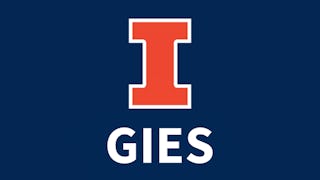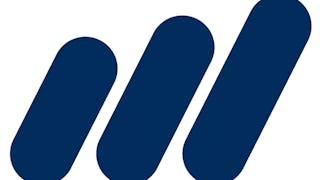Accounting is the language of business. You should be able to explain the top 30 concepts to your cousin in a way they understand it.



Mastering Business Essentials: Accounting
Dieser Kurs ist Teil von Spezialisierung Mastering Business Essentials

Dozent: John Kim
Bei  enthalten
enthalten
Empfohlene Erfahrung
Was Sie lernen werden
Learn how to speak the language of business (accounting). Learn the financial statements so you can hold a business conversation with anyone.
Kompetenzen, die Sie erwerben
- Kategorie: Cash Management
- Kategorie: Income Statement
- Kategorie: Equities
- Kategorie: Balance Sheet
- Kategorie: Accounting
- Kategorie: Financial Reporting
- Kategorie: Operating Cost
- Kategorie: Gross Profit
- Kategorie: Return On Investment
- Kategorie: Profit and Loss (P&L) Management
- Kategorie: Cash Flows
- Kategorie: Financial Statements
- Kategorie: Financial Analysis
- Kategorie: Cost Accounting
- Kategorie: Business Metrics
Wichtige Details

Zu Ihrem LinkedIn-Profil hinzufügen
April 2025
2 Aufgaben
Erfahren Sie, wie Mitarbeiter führender Unternehmen gefragte Kompetenzen erwerben.

Erweitern Sie Ihre Fachkenntnisse
- Lernen Sie neue Konzepte von Branchenexperten
- Gewinnen Sie ein Grundverständnis bestimmter Themen oder Tools
- Erwerben Sie berufsrelevante Kompetenzen durch praktische Projekte
- Erwerben Sie ein Berufszertifikat zur Vorlage

In diesem Kurs gibt es 5 Module
Accounting is the universally accepted language of business. It allows managers, investors, creditors - everyone - to have a unified, and commonly accepted way to analyze the business. It's like a superhero with x-ray vision to see the insides of a company's business. It helps to answer questions like: How much did we sell? Are we profitable? Who owns the business? How much debt do we have? Do we have enough cash to pay our bills?
Das ist alles enthalten
4 Videos1 Lektüre
The income statement (starting with revenues) is like a waterfall, where you take out different expenses until you get to the "bottom line" of net profits. Your ability to do this simply and develop personal intuition about the different types of margin (gross, operating, net) will immediately differentiate you from most people. Let's use the example of a pen company to dig into what's driving costs and profitability.
Das ist alles enthalten
3 Videos1 Lektüre1 Aufgabe
The balance sheet is a financial snapshot of the ownership of a business. Namely, how much of it do you own (equity) and how much it was borrowed from other people with debt (liabilities). The main formula to remember is A = L + E. Assets (what you have) = Liabilities (what you owe) + Equity (what you own). This is a super powerful way to answer questions like a) What's our ability to pay our bills? b) How much debt do we have? c) How much inventory do we have?
Das ist alles enthalten
3 Videos2 Lektüren
Debt is a powerful tool in business that is sometimes misunderstood. 1) Debt can be good if you can borrow funds responsibly, make a good return on it, pay back the interest, and grow the business faster than if you didn't have debt. 2) Debt can be bad if you borrow beyond your ability to repay it, so that you are stuck in a cycle of debt. (e.g., keeping credit card balance and paying 20%+ annually) This same dynamic "debt can be good or bad" applies to student loan debt and government public debt.
Das ist alles enthalten
1 Video2 Lektüren
Cash flow statement is the 3rd financial statement. The cashflow statement shows how money comes in/out of a company through operations, financing (raising money), and investing (getting a return on their investments). Often it only gets attention when a company is in crisis or is having trouble paying their bills. Return on investment (ROI) is a common and useful tool in business. If I invest X, and get Y, how much of a ROI did I get? Of course, it gets very complicated quickly because of the addition question: a) how accurate is that forecast b) what's your risk tolerance? c) what's the time frame d) what are the alternatives?
Das ist alles enthalten
3 Videos1 Lektüre1 Aufgabe1 peer review
Erwerben Sie ein Karrierezertifikat.
Fügen Sie dieses Zeugnis Ihrem LinkedIn-Profil, Lebenslauf oder CV hinzu. Teilen Sie sie in Social Media und in Ihrer Leistungsbeurteilung.
Dozent

Mehr von Business Essentials entdecken
 Status: Kostenloser Testzeitraum
Status: Kostenloser TestzeitraumUniversity of Illinois Urbana-Champaign
 Status: Kostenloser Testzeitraum
Status: Kostenloser TestzeitraumCorporate Finance Institute
 Status: Kostenloser Testzeitraum
Status: Kostenloser TestzeitraumIESE Business School

Politecnico di Milano
Warum entscheiden sich Menschen für Coursera für ihre Karriere?





Neue Karrieremöglichkeiten mit Coursera Plus
Unbegrenzter Zugang zu 10,000+ Weltklasse-Kursen, praktischen Projekten und berufsqualifizierenden Zertifikatsprogrammen - alles in Ihrem Abonnement enthalten
Bringen Sie Ihre Karriere mit einem Online-Abschluss voran.
Erwerben Sie einen Abschluss von erstklassigen Universitäten – 100 % online
Schließen Sie sich mehr als 3.400 Unternehmen in aller Welt an, die sich für Coursera for Business entschieden haben.
Schulen Sie Ihre Mitarbeiter*innen, um sich in der digitalen Wirtschaft zu behaupten.
Häufig gestellte Fragen
Accounting is the global language of business. This is what enables global trade, mergers & acquisitions, fiduciary responsibility, and investor confidence. Accounting has a rich history and there are many levels of expertise.
Do you need to become a CPA-level expert with detailed practitioner-level knowledge of debits and credits? No.
Do you need to know the difference between COGS and SG&A? Yes.
If accounting has 10 levels of understanding, this will easily cover the essentials for you.
John Kim, is an associate professor in the practice, at Emory University. He is a management consultant by experience and passion. He's been teaching strategy, healthcare, and consulting since 2017.
He has a Management Consulting specialization here with 1,300+ reviews with a weighted average 4.9 star rating here.
His teaching style is interactive - yes, even with online videos - and wants you to succeed. See his teaching philosophy here.
Access to lectures and assignments depends on your type of enrollment. If you take a course in audit mode, you will be able to see most course materials for free. To access graded assignments and to earn a Certificate, you will need to purchase the Certificate experience, during or after your audit. If you don't see the audit option:
The course may not offer an audit option. You can try a Free Trial instead, or apply for Financial Aid.
The course may offer 'Full Course, No Certificate' instead. This option lets you see all course materials, submit required assessments, and get a final grade. This also means that you will not be able to purchase a Certificate experience.
Weitere Fragen
Finanzielle Unterstützung verfügbar,

